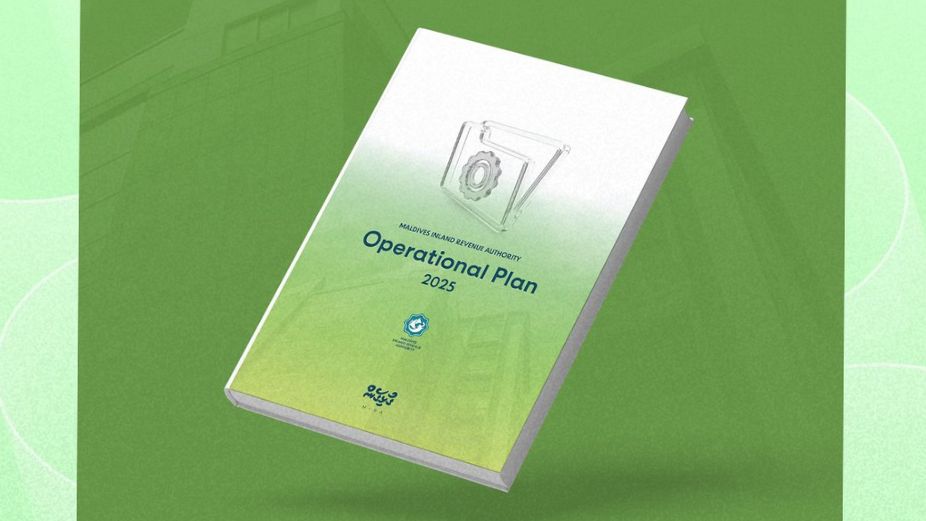
The Maldives Inland Revenue Authority (MIRA) has unveiled its 2025 Operational Plan, detailing a set of initiatives designed to support the organisation’s strategic objectives through to 2028. The plan is structured around four core perspectives: financial sustainability, stakeholder engagement, operational efficiency, and workforce development. Each of these areas contains specific objectives aimed at improving the authority’s operations and interactions with public.
Financial Sustainability and Efficiency
MIRA’s primary goal under financial sustainability is to improve cost efficiency and streamline operational processes. The plan includes the preparation and execution of an annual procurement plan, alongside measures to enhance cashflow management. By monitoring budget utilisation on a quarterly basis, MIRA aims to ensure that resources are allocated effectively to high-priority areas. Additionally, the authority will conduct an analysis of space and resource needs, with the possibility of requesting a new facility to meet regulatory and security standards.
Strengthening Stakeholder Engagement
MIRA plans to further develop its relationship with key stakeholders, including taxpayers, businesses, and industry representatives. Following the launch of the “Gulhigen MIRA” initiative in 2024, the authority will conduct bi-annual consultations to address sector-specific concerns and facilitate discussions. Transparency will be a focus, with plans to regularly publish activity reports, statistics, and other relevant information. The authority will also continue to enhance its digital services, including the development of an updated online portal and the introduction of AI-driven chatbots to assist taxpayers.
Improving Taxpayer Services and Compliance
MIRA aims to simplify the tax process for businesses and individuals through a range of digital and operational improvements. A service standard guideline will be implemented to ensure consistency in taxpayer interactions. In addition to revamping the online portal for improved accessibility and reliability, MIRA will introduce measures to enhance compliance with international tax transparency standards. This includes offering publicly accessible APIs to help taxpayers automate their processes and eliminate the need for duplicate registrations across government agencies.
Fostering Voluntary Compliance
To support voluntary compliance, MIRA will continue efforts to raise taxpayer awareness and improve adherence to tax regulations. This will involve routine business inspections and targeted outreach based on risk assessments. MIRA will also engage with the public through social media campaigns to increase awareness of tax deadlines and obligations. Furthermore, the authority will provide guidance on new laws and key legal developments to ensure that taxpayers have access to the information they need to comply with their tax responsibilities.
Advancing Operational Efficiency
A major focus for MIRA in 2025 is improving operational efficiency through the integration of advanced technologies and risk management practices. This includes the implementation of an Enterprise Risk Management (ERM) framework and a strengthened Information Security Management system, both aligned with international standards. MIRA will also focus on improving system performance by adopting SAP HANA for real-time data processing, which will support more efficient workflows and better data analytics across the organisation.
Technology Integration and Automation
Automation and technology integration are key areas for enhancing MIRA’s operational efficiency. The authority plans to implement a comprehensive data governance framework and centralise data storage to improve access and security. In line with national digital identity initiatives, MIRA will explore new functionalities to improve service delivery. The introduction of an internal intranet platform will also help to streamline task management and internal collaboration. Additionally, MIRA will assess the implementation of e-invoicing solutions as part of its ongoing efforts to modernise operations.
Developing a Future-Ready Workforce
MIRA’s 2025 plan also places a significant emphasis on workforce development. The authority will focus on improving staff satisfaction through annual surveys and the refinement of human resources policies. It will also explore opportunities to enhance employee retention by researching competitive compensation packages and non-monetary benefits. A key priority is the establishment of a robust performance evaluation system and a structured approach to staff professional development. This will include the implementation of an automated succession planning system and the introduction of e-learning platforms to support continuous learning and knowledge-sharing within the organisation.
We are excited to unveil our 2025 Operational Plan! This plan describes an overview of the initiatives and activities that MIRA will be undertaking during the upcoming year.
— Maldives Inland Revenue Authority (@MIRAmaldives) December 30, 2024
Explore the full plan here: https://t.co/jNpRD2Ozka pic.twitter.com/hKXDbm0Ixn
MIRA’s 2025 Operational Plan sets out a range of initiatives across four core perspectives, aiming to improve its efficiency, stakeholder engagement, and workforce development. By focusing on these areas, MIRA seeks to strengthen its capacity to deliver tax administration services more effectively and sustainably in the coming years.












